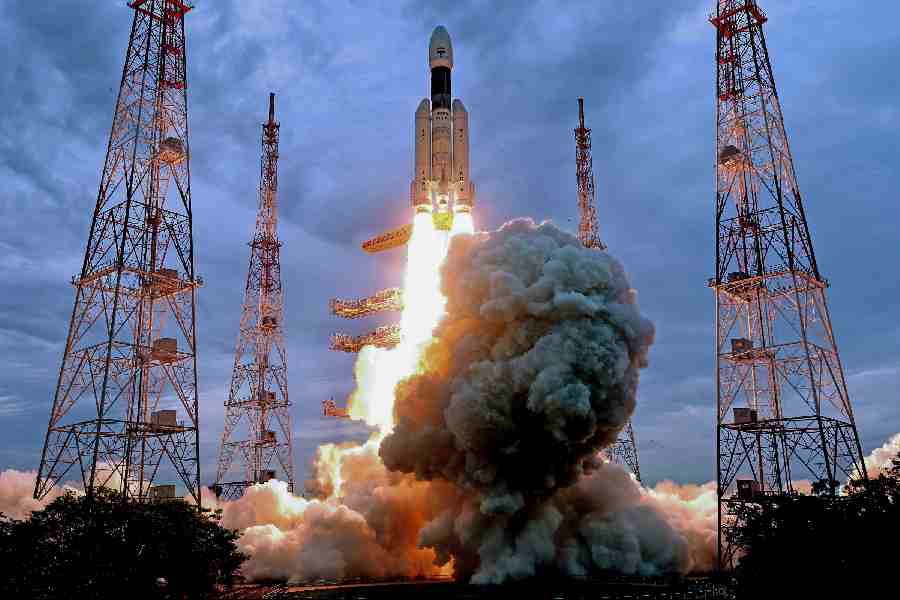India's third lunar mission – Chandrayaan-3 – is in good health and its most critical phase will be the orbit determination process when the spacecraft starts moving closer to the moon from the 100 km circular orbit, Indian Space Research Organisation Chairman S Somanath said on Monday.
Launched on July 14 by the Launch Vehicle Mark-3 rocket, Chandrayaan-3 spacecraft is now placed in a 170 km by 4,313 km elliptical orbit around the moon and a series of manoeuvres are planned for August 9 and 17 to place it in a 100 km circular orbit.
The Vikram lander is expected to descend on the moon on August 23.
"Up to 100 km we do not see any difficulty. The issues are only in estimation of the position of the lander accurately from earth. This measurement is a very critical measurement, we call it the orbit determination process. If it is correct, the rest of the process can be done," Somanath told PTI here.
"We are able to bring it down very correctly this time. The orbit changes are happening as planned. There is no deviation. So, it shows excellent results and we are hoping that all will be fine," the ISRO chairman said.
He said the experience from Chandrayaan-2, the 2019 mission that was a partial success, was proving to be very useful as the space agency attempted to land a spacecraft on moon.
"The Chandrayaan-2 experience will be of great help. We went through in great detail on what possibly went wrong. We re-constructed the scenario and made a lot of modifications to Chandrayaan-3," Somanath said.
He said images of the moon from Chandrayaan-2 mission were used in Chandrayaan-3 for its better positioning and increasing the landing area measurements.
"We have gathered more intelligence to handle contingencies and failure. We went through an extensive testing programme to validate all of this," Somanath said.
Except for the headline, this story has not been edited by The Telegraph Online staff and has been published from a syndicated feed.











